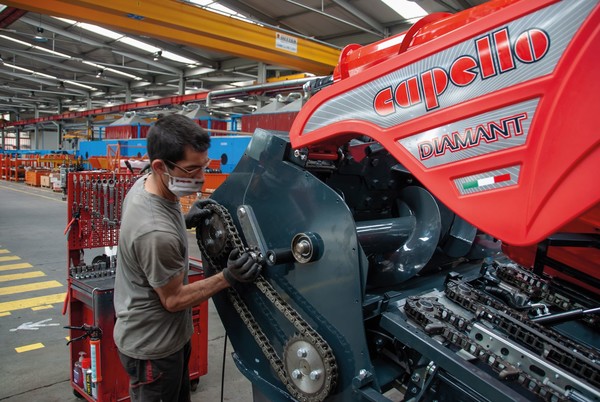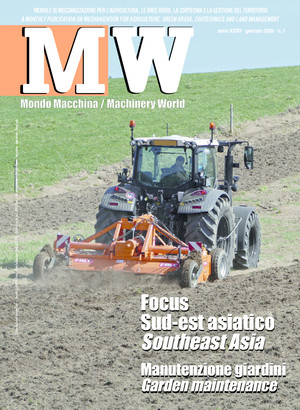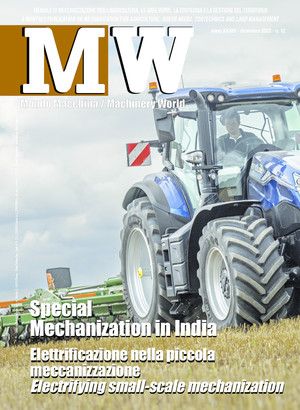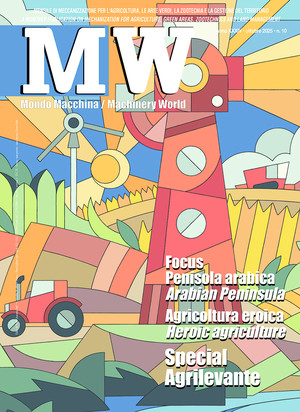
Raw materials, an unknown for the agri-mechanical industry
The strong growth in production risks being held back by shortages of raw materials, as well as rising logistics costs. Due to the Chinese supply blockade, the cost of ferrous materials and silicon for the electronics industry has risen beyond all expectations. Current stocks can cover orders until the middle of next year, but uncertainties and concerns remain for the rest of the year
The world market for agricultural machinery has shown a positive trend in recent months, with significant increases in all the main countries. Global demand for agricultural technology is still very high, but in the coming months the growth trend is likely to come to a screeching halt because of the difficulties in logistics and the rising cost of raw materials.
The president of FederUnacoma, Alessandro Malavolti, dwelt on these aspects during the press conference held in Bologna on the eve of EIMA 2021. The World Container Composite Index, which analyses container rental values on the main shipping routes, shows that in September this year the rental price grew by 292% compared to the previous year. The increase in commodity prices, which has been going on for several months, became particularly strong last September when energy costs grew by 365%, sheet metals and hot rolled coils respectively by 234% and 200%, polyethylene by 160% and polypropylene by 123% (Anima Confindustria).
“While the cost of the energy bill is affected by economic factors, and can therefore return to acceptable levels over a certain period of time," Malavolti explained, "the raw materials crisis is the result of a precise Chinese political strategy, against which it is not easy to field countermeasures. China has reduced its exports of steel and ferrous materials to satisfy its fast-growing domestic demand, and as a result the purchase price of supplies for the agricultural machinery industry, both in Italy and abroad, has risen dramatically (in some cases by as much as 100%)". The problem is not only in Italy, but concerns the agri-mechanical sector worldwide. The sector not only has to cope with the emergency concerning plastic and ferrous materials - it was explained during the conference - but also with the shortage of silicon metal, which is essential for the production of chips and semiconductors used in all 4.0 systems applied to agricultural machinery.
According to data released by Bloomberg, the shortage of silicon, again triggered by the cut in Chinese supplies, has driven up prices by 300% in less than two months. "At the moment, Italian agro-mechanical companies are still managing to meet orders," explained the manufacturers' chairman, "albeit by resorting to much more expensive supplies and using accumulated stocks. However, it is estimated that, if the tensions in the raw materials market do not return to normal levels soon, the stocks of companies to fulfil orders may not last more than six to eight months".
As shown by the FederUnacoma Barometer - the climate analysis that the association periodically conducts among its member companies - today the confidence indexes of Italian manufacturers are still relatively good, but this is a situation that must be carefully monitored since the overall framework could worsen suddenly. “The issue has political relevance," concluded Malavolti, "for at least two aspects: that relating to the weakness of the national steel industry, which is increasingly dependent on foreign countries, and that relating to trade relations with China".








